SUMMARY
This is AI generated summarization, which may have errors. For context, always refer to the full article.
BAGUIO CITY, Philippines – Every day, for the past 22 years since his first son was born, Antonio Lanaja would wake up early in the morning, rain or shine, and walk to a coconut plantation in Davao del Sur — the province where he and his family lived — and climb a tree.
From the trees, he would gather tuba or coconut wine, and sell it for P10 per gallon.
In the afternoon, after gathering tuba, Antonio would sell ice cream. Antonio’s family would manually mix ingredients together to make the ice cream he would sell.
Antonio is the father of 3 — a girl and two boys, one of whom is deaf-mute. His wife Erlinda stayed home with the children, while he worked to feed his family and send his kids to school. At night, he would return home to his wife and kids, to a house held together by ipil-ipil and coconut, with bamboos for walls and floors, and a roof made of dried coconut leaves.
On Sunday, March 17, Antonio sat in a grand stadium in the country’s summer capital, over 1,000 km away from his house.
He looked at the reporters who swarmed him and shoved microphones to his gaunt face. He is short, dark-skinned and bony. His eyes were red from crying. He nodded from time to time, in agreement with his wife, who was able to handle reporters better.
But Antonio was mostly quiet. He was evidently overwhelmed, unable to answer many of the questions thrown his way, but he was smiling, a mixture of surprise, happiness and pride.
On this day, his 22 years of climbing trees is well worth it.
On this day, his eldest son Jestony graduated valedictorian from the Philippine Military Academy (PMA).
Greatest inspiration
Jestony stood handsome, uniformed, in front of his 123 classmates and the other cadets in the academy, against the backdrop of Baguio’s pine trees and mountains.
Behind him sat President Benigno Aquino III, Vice President Jejomar Binay, Defense Secretary Voltaire Gazmin and Armed Forces of the Philippines chief of staff Gen Emmanuel Bautista as he delivered his valedictory speech.
In the middle of his speech, he asked for the indulgence of the crowd to personally thank his parents. Then in Davaoeño, he addressed them.
“Ma, Pa, thank you for your hard work and sacrifice to help me get to where I am today. What I have and what I am now is for you and because of you,” he said.
Parents of graduates sniffled in their seats.
Later, he told reporters his parents are his greatest inspiration. He said seeing how hard his father worked for them fueled his desire to work just as hard, with the goal of lifting them from poverty. He spoke calmly, with dignity, and assumed the stance and restraint of a true soldier.
Reporters snapped photos of him with his family. His parents, both shorter than he, stood idly next to him, beaming. His 20-year-old sister, Angeline, clung to his arm, and lapped it up for the cameras, basking in the attention. His younger brother, JP, was restless, confused, unable to communicate. But he too smiled, sensing it was an important day for his family.
They had always been a close-knit family. Jestony was the first to tell reporters the hardest part of Academy was the transition period, when he first entered the Academy. His family agreed.
“When he first left, it was the most difficult time because it was the first time we were far apart,” Angeline said. “But I supported him because I knew it was for us.”
His mother Erlinda echoed her daughter, saying Jestony’s first year away was the most challenging time. It was his decision to join the army, she said, so she let him go.
She said, “At first, I was scared. But he said, ‘Keep your faith in God because if this is for me, it is for me.'”
It was.
Jestony knew he always wanted to be a soldier.
He was unable to explain what it was about being a soldier that attracted him, but simply explained, “It was my desire, my dream.”
Needs, not wants
Growing up, Jestony played with toys made from tin cans, coconut shells and wood in the vast cropfields of Davao del Sur.
His days were lit by sunlight, his nights by kerosene lamps, fireflies, and the moon. There was no electricity, no appliances in his childhood, except for a battery-powered radio.
As a young student, Jestony walked 1km to school every day.
During the trek, Jestony sold boiled banana, or saba, for P1 each as instructed by his father. When there was no saba, Antonio and Erlinda woke up early to pick guavas for their children to sell. The leftover fruits Jestony and his siblings were unable to sell became their snacks at school. When Jestony was a little older, he sold ice drops on weekends and during the summer as encouraged by his father.
Every coin he earned went straight to his coin bank made of bamboo. It was never much, he said, but it was something.
Early on, Jestony said his father taught him the difference between “needs” and “wants” — a lesson that served him well when he reached high school.
High school, he said, was an all-new environment that he found hard to adapt to, “where most of my classmates were rich and there I was, a farm boy with a big back pack and without a polo.”
“The biggest problem for me was how I would surpass the inferiority I felt,” he wrote in an essay. “It was my burden on how I would prove to them that it is not about wealth, rather it is about discipline, intellect, right attitude and faith in God.”
Jestony lived with his uncle, and walked 2km to school daily rather than commute, as to save money. New projects and extra charges were always a source of stress, as was being enrolled in a Special Science class because of the added expenses. Later, he transferred to a boarding house, and lived with only his “needs,” he said, and no “wants.” Away from his hometown, he went to church every morning before school.
Only focused on school and helping his family, Jestony rarely attended parties, handpicked his friends, and “carefully selected those people who would influence me in the right path.”
Jestony finished high school sustained by his father’s income.
Now a soldier
On August 31, 2008, a total of 5,654 took the PMA Qualification Test.
Of that number, only 942 passed, and 193 were appointed — 181 of whom reported to and were received in PMA. Four years later, 124 graduated — the 2013 ‘Pudang Kalis’ class — with Jestony on top.
Even making it to the PMA after high school was a difficult road.
Knowing his family had no money to send him to college and not wanting to compromise his sister’s education nor burden his parents by usurping family funds, Jestony kept mum about his dreams to go to college and instead worked to save money in order to study. Working part-time jobs, Jestony harvested sugar cane — bundles sold for P1 and he was able to sell about 50 a day — and hauled coconuts at a farm.
The job was tedious, he said, but his eyes were on the future.
“My thirst for learning pushed me to strive harder because if I will not, I will be like the rest of the out of school youth in our place. I will surely die with the same status in life,” he wrote.
Jestony was later elected Sangguniang Kabataan councilor in his barangay, which made him eligible to study in a TESDA-accredited trade school for free, where he took up Building Wiring Installation.
He never finished the course however because Jestony was accepted at the PMA.
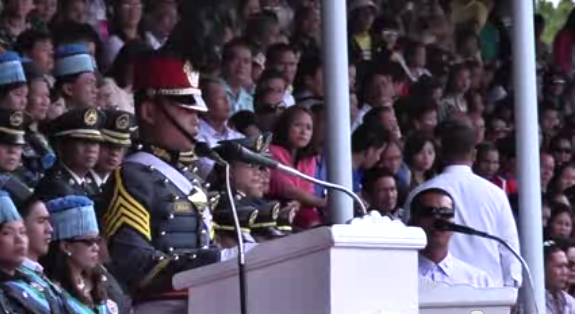
Neither his parents, nor his siblings, nor his girlfriend of two years knew Jestony was class valedictorian — he didn’t even tell them there was a possibility. His parents heard it first through media, while his girlfriend heard of the news through friends.
On graduation day, Jestony urged his peers to stay true to the values instilled in them by the Academy, which groomed them into the finest of Filipino fighters.
“Let us keep the values of courage, integrity and loyalty intact, and let it be a beacon that would guide us daily in our thoughts and deeds,” he told his classmates during his speech.
Jestony recalled the tough trainings and their intense experiences, but said he never thought of quitting. He told reporters, he and his other classmates from Mindanao promised each other they wouldn’t quit.
Today, all of them graduated together, with Jestony at the helm.
Today, the cost of a gallon of tuba is now P25. But it may no longer matter.
Because today, the son of a tuba gatherer is now a soldier. – Rappler.com
Add a comment
How does this make you feel?
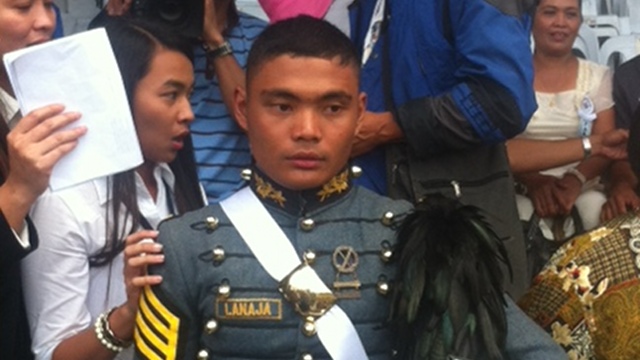
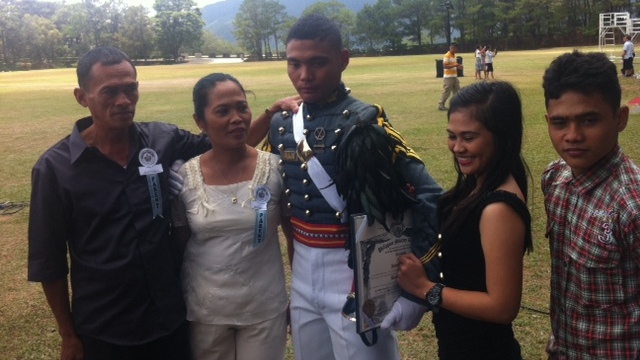
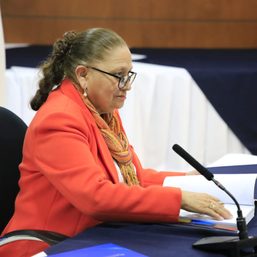

![[WATCH] Try This: Empanada Salteña from Argentina](https://www.rappler.com/tachyon/2023/04/try-this-empanada-saltena-argentina.jpg?resize=257%2C257&crop=765px%2C0px%2C1037px%2C1037px)
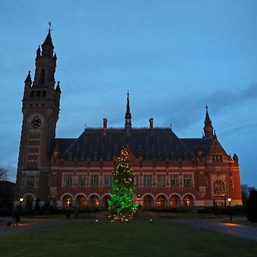
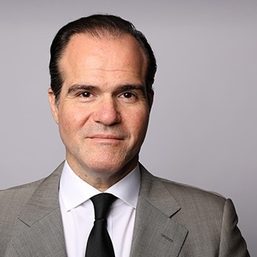
There are no comments yet. Add your comment to start the conversation.